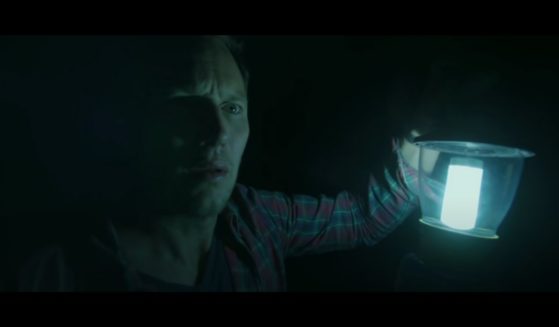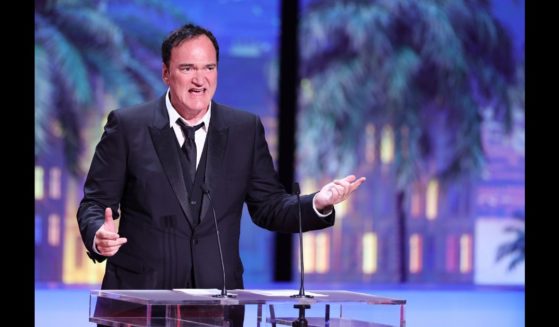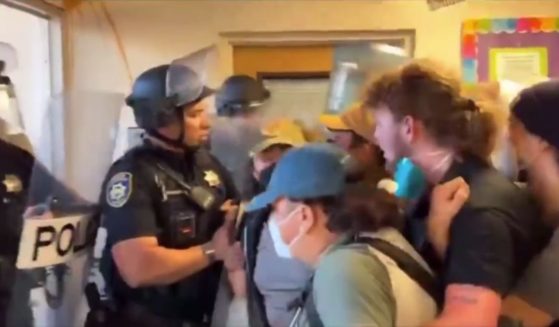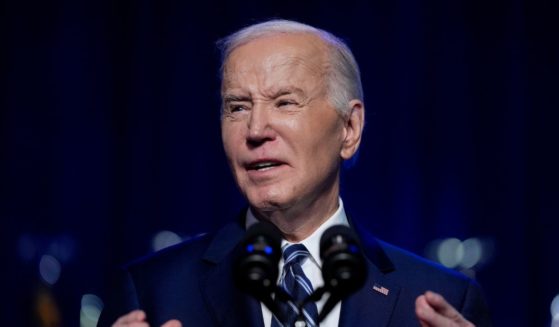Cold-Blasted US in for Another Round of Freezing Weather: It Could Feel Like -30 in Some Areas
Memphis residents were urged to boil water and New Yorkers have been warned that roads could be covered with dangerous black ice this weekend as brutal cold and inclement weather continue to sweep across parts of the U.S.
Bitterly frigid air spilled into the Midwest from Canada as forecasters warned Saturday that wind chills would make it feel like minus 30 degrees Fahrenheit outside in some areas.
Heavier-than-forecast snow fell in New York City, Baltimore and Washington, D.C. on Friday. Storms have walloped the Pacific Northwest, Midwest, Plains, South and Northeast with low temperatures, heavy snow, ice storms, freezing rain and high winds for the past two weeks.
With a wind chill, it will feel like 15 degrees below zero Fahrenheit in portions of Kansas on Saturday, according to the National Weather Service. A huge swath of the U.S. was under a wind chill advisory that extended from parts of Montana all the way to Florida to warn residents of bone-chilling cold.
A potential thaw isn’t expected until next week, when the forecast calls for above-average temperatures across most of the country, according to the National Weather Service.
The bracing weekend weather follows a series of storms blamed for at least 55 deaths around the country, many of them involving hypothermia or road accidents.
Tennessee recorded 19 deaths alone. They included a 25-year-old man who was found dead on the floor of a mobile home in Lewisburg after a space heater overturned and turned off, said Bob Johnson, chief deputy for the Marshall County Sheriff’s Office.
“There was ice on the walls in there,” Johnson said.
Days of cold broke so many water mains in Memphis, Tennessee, that water pressure fell throughout the city. On Friday, Memphis Light, Gas & Water urged all of its more than 400,000 customers to boil water for drinking or teeth-brushing or use bottled supplies. Water systems in about 10 counties had issued boil-water advisories.
It wasn’t clear how long the advisory will be in force. While some 50 ruptures were repaired, utility President Doug McGowen warned of new leaks emerging. Water officials said some customers were without running water entirely, but declined to provide a specific number. Drinking water was being distributed at two fire stations on Friday.
A significant drop in blood donations, partly linked to the weather, led Chattanooga-based Blood Assurance to recommend that more than 70 hospitals in five states halt elective surgeries until Wednesday to allow inventory to be restocked.
In West Virginia, advisories and warnings were out Saturday because of continued fierce weather. The weather service said some regions could see up to 4 inches of additional snow with winds gusting to 40 mph and wind chill driving down temperatures as low as 20 below zero.
The West Virginia Legislature left after a brief session Friday because not enough lawmakers could get through snow-covered highways to the Capitol to vote on bills.
In Washington D.C., snow fell softly and the streets around the U.S. Capitol were silent. Schools closed for the second time in a week and the federal government was on a two-hour delay. However, President Joe Biden still welcomed mayors from around the country to the White House for the U.S. Conference of Mayors.
In Buffalo, New York, lake-enhanced snow finally moved out after burying parts of the city and some suburbs in five feet of snow in five days. The Buffalo Bills on Friday renewed a call for snow shovelers, offering $20 an hour for help digging out Highmark Stadium before Sunday’s divisional playoff game against the Kansas City Chiefs.
Michigan City, Indiana, received 17 inches of lake-effect snow on Friday. The snow later eased as a low pressure system moved away but the weather service warned that “much colder air wraps in behind it,” and urged drivers to watch out for patches of slick and treacherous black ice.
On the West Coast, Oregon Gov. Tina Kotek on Thursday declared a statewide emergency following deadly ice storms. The weather service reported that temperatures Friday were finally above freezing for most areas and ground snow and ice would slowly begin to melt.
More freezing rain was forecast Saturday in the Columbia River Gorge and the area was expected to remain near or below freezing through at least Sunday night. Trees and power lines already coated with ice could topple if they get more, the National Weather Service warned.
“Stay safe out there over the next several days as our region tries to thaw out,” the weather service said. “Chunks of falling ice will remain a hazard as well.”
Thousands have been without power since last weekend in parts of Oregon’s Willamette Valley because of storm damage. Despite work by repair crews, more than 41,000 customers were without electricity in the state early Saturday, according to the website poweroutage.us.
___
Associated Press journalists Jonathan Mattise and Kristin M. Hall in Nashville, Tennessee, Claire Rush in Portland, Oregon, Carolyn Thompson in Buffalo, New York, Jeffrey Collins in Columbia, South Carolina, and Colleen Long in Washington contributed.
The Western Journal has reviewed this Associated Press story and may have altered it prior to publication to ensure that it meets our editorial standards.
Truth and Accuracy
We are committed to truth and accuracy in all of our journalism. Read our editorial standards.












